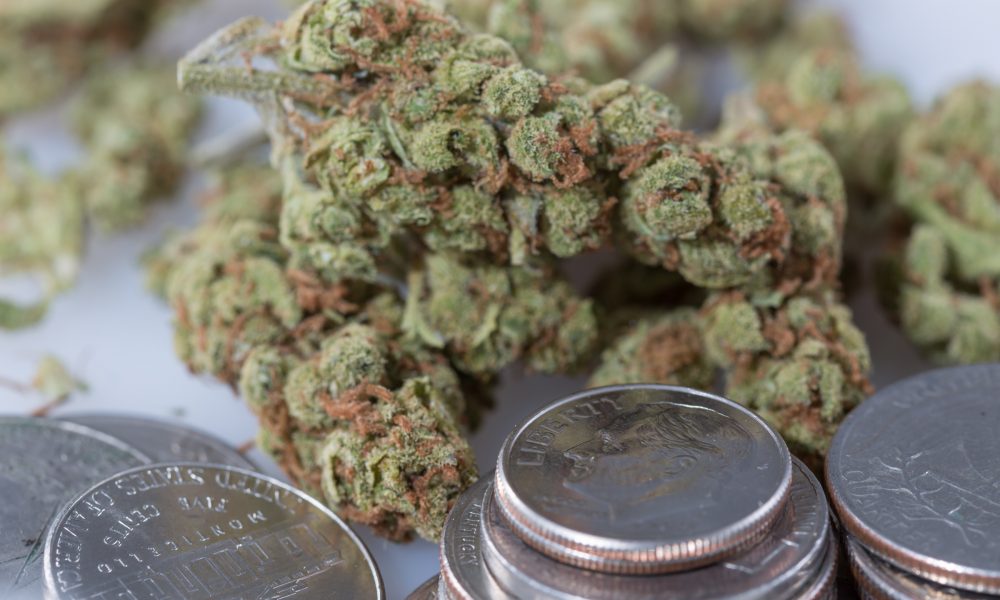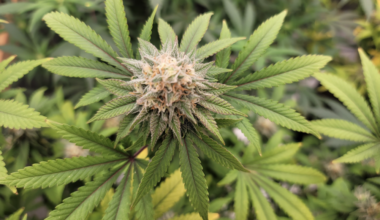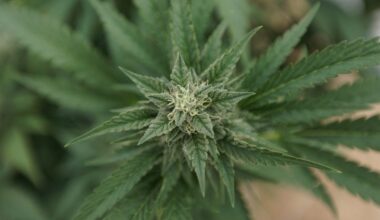A coalition of financial associations on Wednesday sent a letter to House leadership, imploring lawmakers to approve an amendment to protect banks that work with-state legal marijuana businesses as part of a large-scale defense bill.
The letter comes from the Americans Bankers Association (ABA), Credit Union National Association (CUNA), Independent Community bankers of America (ICBA) and National Association of Federally-Insured Credit Unions.
Rep. Ed Perlmutter’s (D-CO) cannabis banking amendment to the National Defense Authorization Act (NDAA) was made in order during a House Rules Committee meeting on Wednesday, with the congressman insisting that the legislation would be an appropriate vehicle for the bipartisan Secure and Fair Enforcement (SAFE) Banking Act.
ICBA and other groups today are calling on the House to include a cannabis banking safe harbor in the fiscal 2023 National Defense Authorization Act (H.R. 7900). https://t.co/gcdC6x9Jvs
— Independent Community Bankers of America (@ICBA) July 13, 2022
Leadership on the panel evidently agreed, and now the proposal is set to receive a vote on the House floor on Wednesday.
“We take no position on legalizing or decriminalizing medicinal or recreational cannabis at either the state or federal level,” the financial organizations wrote in the new letter. “However, financial institutions operating in states where it is legal have business and individuals involved in the cannabis market who need access to traditional depository and lending services, the absence of which creates a significant public safety issue.”
“Additionally, even those financial institutions that choose not to bank the cannabis industry risk unknowingly serving cannabis businesses in states where cannabis is legal. Indirect connections are often difficult to identify and avoid because, like any other industry, those offering cannabis-related services work with vendors and suppliers. Under current law, a financial institution that does business with any one of these indirectly affiliated entities could unknowingly violate federal law.”
The House has already passed the SAFE Banking Act in some form six times along largely bipartisan lines, but it’s consistently stalled in the Senate under both Republican and Democratic leadership. Senate Majority Leader Chuck Schumer (D-NY) is viewed as the key obstacle to advancing the incremental reform, as he’s insisted on passing comprehensive legalization first.
Many stakeholders and advocates had hoped that the banking language would be included in the final report for a manufacturing bill called the America COMPETES Act that’s currently in bicameral conference, but leadership recently reached an agreement to exclude it during negotiations. That’s why Perlmutter is again filing it as an amendment to NDAA.
The congressman pushed for SAFE Banking as part of last year’s NDAA, but while the House included the measure in its version of that bill at the time, lawmakers could not reach an agreement with the Senate to enact it as part of the final package.
“The SAFE Banking Act puts in place necessary protections to bring revenue from state-sanctioned cannabis businesses into the financial services mainstream,” the financial groups said in the new letter. “Legal cannabis businesses would no longer be forced to deal exclusively in cash, which makes them vulnerable to violent robbery and puts customers, employees, and the public at risk. The SAFE Banking Act will help keep our communities safe.”
Perlmutter also said on Tuesday that “there is a hope that we can move forward with SAFE Banking as the nucleus for a slightly broader type of effort” outside of NDAA. He described what is effectively a marijuana omnibus of modest reforms that are reportedly being considered in high-level, bicameral talks.
Cannabis banking could be a key component of that package, which might also include provisions related to marijuana research for military veterans, cannabis industry access to federal Small Business Administration (SBA) services and incentivizing states to expunge prior marijuana records, Perlmutter said.
With respect to NDAA, the congressman said that the “same basics apply” to his banking amendment as they did last year, with respect to public safety aspects of the reform proposal. What’s different this round, he said, is that his office received a Congressional Budget Office (CBO) score that shows the measure actually “brings money into the United States.”
It remains to be seen whether the CBO opinion will change the political dynamics in the Senate, but Perlmutter’s office confirmed to Marijuana Moment that they received a score that showed that the SAFE Banking Act would result in cost savings of about $500,000 over a 10-year period (2022-2032). A staffer was not able to share the text of the analysis, however, and CBO did not respond to a query by press time.
The marijuana banking legislation is just one of nine drug policy-related proposals that the Rules Committee cleared for House consideration on Tuesday. For example, measures covering medical marijuana recommendations for military veterans and the therapeutic benefits of psilocybin for military personnel will receive floor votes.
Lawmakers have tried to attach drug policy reform to NDAA in past sessions, with mixed results. For the current Fiscal Year 2023 bill, however, there seemed to be even wider, bipartisan interest in using the defense bill as a vehicle for cannabis and psychedelics policy.
Read the letter from the financial institutions on marijuana banking and the NDAA below:
House Will Vote On These Marijuana And Psychedelics Measures As Part Of Defense Bill This Week
Medical Disclaimer:
The information provided in these blog posts is intended for general informational and educational purposes only. It is not a substitute for professional medical advice, diagnosis, or treatment. Always seek the advice of your physician or other qualified healthcare provider with any questions you may have regarding a medical condition. The use of any information provided in these blog posts is solely at your own risk. The authors and the website do not recommend or endorse any specific products, treatments, or procedures mentioned. Reliance on any information in these blog posts is solely at your own discretion.





